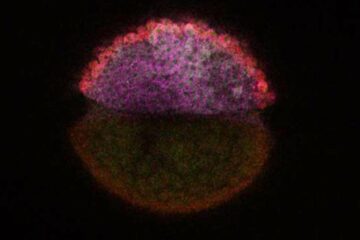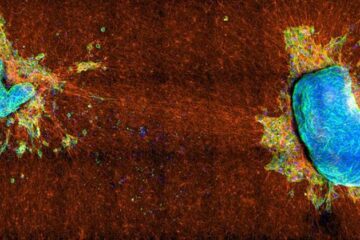New study bolsters beliefs about DNA repair

The function of HP1 proteins has puzzled researchers. The proteins, which come in three forms in mammals, cozy up to heterochromatin—the tightly wound sections of DNA where genes are usually inactive.
Early studies indicated that the proteins' job was to turn genes off. But recent work suggested that the proteins are essential for repairing damaged DNA. These results came from in vitro studies, however, and the proteins' powers in vivo remained uncertain.
Aucott et al. created the first mouse strain missing one of the HP1 versions, HP1b. The animals die shortly after birth because their lungs don't inflate. The rodents show brain defects as well. Large numbers of neurons die, for example, and the neural stem cells in the cortex divide sluggishly. Both effects could arise from unfixed DNA.
When the researchers grew brain cells from HP1b-lacking mice in culture, they saw clear indications of genomic instability that can result from faulty DNA repair, including unpaired sister chromatids that separated prematurely and even extra sets of chromosomes. The HP1 proteins latch onto the methylated version of the H3 histone, but how this interaction promotes repair is an unanswered question.
Aucott, R., et al. 2008. J. Cell Biol. doi:10.1083/jcb.200804041.
Media Contact
More Information:
http://www.rockefeller.eduAll latest news from the category: Studies and Analyses
innovations-report maintains a wealth of in-depth studies and analyses from a variety of subject areas including business and finance, medicine and pharmacology, ecology and the environment, energy, communications and media, transportation, work, family and leisure.
Newest articles

Decoding development: mRNA’s role in embryo formation
A new study at Hebrew University reveals insights into mRNA regulation during embryonic development. The study combines single-cell RNA-Seq and metabolic labeling in zebrafish embryos, distinguishing between newly-transcribed and pre-existing…

Study sheds light on cancer cell ‘tug-of-war’
How cancer cells tug against each other determines whether they can migrate elsewhere in the body. Understanding how cancerous cells spread from a primary tumor is important for any number…

Latest generation of self-dissolving stents
Magnesium implants support coronary arteries and keep them open. Constricted coronary arteries harbor dangers: Because the heart is not supplied with blood properly, this can lead to pain, cardiac arrhythmia,…





















